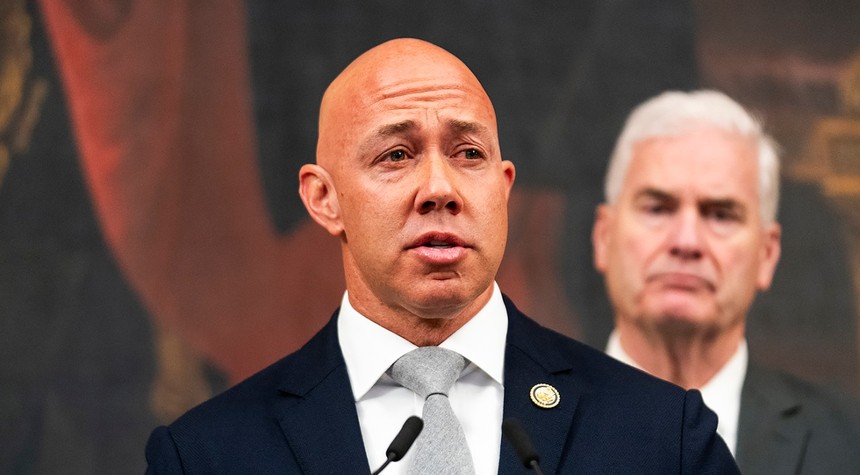The question of what to do about Syria has landed squarely on Capitol Hill’s doorstep, and the clock is ticking with all the urgency of a time bomb in a suspense thriller.
Rep. Brian Mast of Florida, who chairs the House Foreign Affairs Committee, finds himself threading a needle that would challenge the steadiest of hands. He told reporters Thursday that while he supports repealing the comprehensive sanctions on Syria, he wants insurance written into the legislation. That insurance would come in the form of conditions that Syria’s interim government must meet, or face penalties down the road.
President Trump has made his position crystal clear. He wants the sanctions gone, period. The House and Senate are now locked in what insiders describe as intense negotiations, racing to finalize the National Defense Authorization Act by Friday’s deadline. If all goes according to plan, lawmakers will vote on the sanctions repeal during the first week of December.
Mast insists his position does not contradict the administration’s stance, though the distinction may strike some observers as rather fine. Under current law, Trump can only waive the sanctions for six-month intervals, a limitation that clearly frustrates the White House’s broader strategic vision.
“Fully repealed, to have mechanisms, or rather a sentiment that sanctions should be reinstituted if a number of conditions are not met,” Mast explained. “Still fully repealed.”
The congressman is attempting to navigate treacherous political waters. The sanctions in question, formally known as the Caesar Syria Civilian Protection Act, represent some of the most far-reaching economic penalties ever imposed on a nation. These measures blocked virtually all financial transactions with Syria under Bashar Assad’s regime and punished other countries for doing business with Damascus, given that government’s documented human rights atrocities, mass killings, and systematic imprisonment of civilians.
Mast’s proposal for conditional repeal with unnamed benchmarks will likely draw fire from repeal advocates who argue that any threat of reimposing sanctions will chill Syria’s desperately needed reconstruction and rehabilitation efforts. The congressman, who has emerged as a leading voice of caution on this issue, confirmed he maintains daily contact with the White House as negotiations continue.
The push for full repeal gained considerable momentum after Ahmed al-Sharaa successfully overthrew Assad’s regime in December and assumed leadership of Syria’s transitional government. Trump met with al-Sharaa earlier this month in a historic White House visit that was largely conducted away from cameras and reporters.
“He’s a very strong leader. He comes from a very tough place. Tough guy. I like him,” Trump told reporters following that meeting. “I get along with the president, the new president in Syria, and we’ll do everything we can to make Syria successful.”
The president’s support for lifting sanctions has been reinforced by pressure from key regional allies. Saudi Crown Prince Mohammed bin Salman made the case directly during his recent Washington visit.
“We did lift the sanctions at the request of the crown prince,” Trump acknowledged. He also revealed that Turkish President Recep Tayyip Erdoğan personally called to make an urgent appeal. “He said, ‘If you don’t lift the sanctions, Syria doesn’t have a chance. If you do, they have a very good chance.'”
As the Friday deadline approaches, the fundamental tension remains unresolved. Can Congress craft legislation that satisfies the White House’s desire for a clean repeal while also building in safeguards that address legitimate concerns about Syria’s future direction? The answer to that question will likely determine not just the fate of this legislation, but potentially the trajectory of an entire nation struggling to emerge from decades of tyranny.
Related: American Citizen Freed From Saudi Arabia After Four Years Following Trump Diplomatic Efforts


